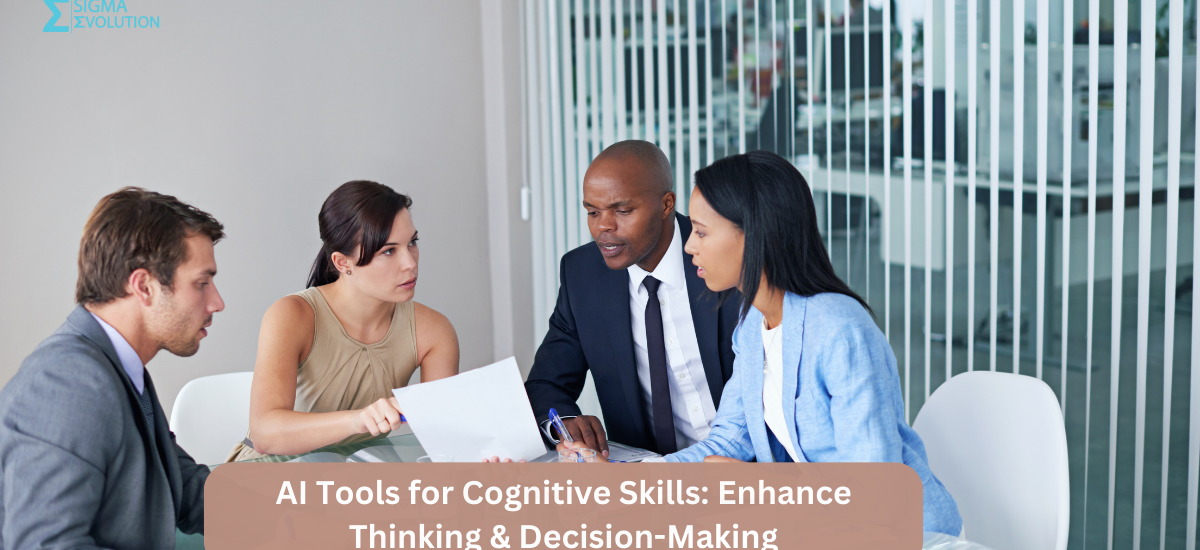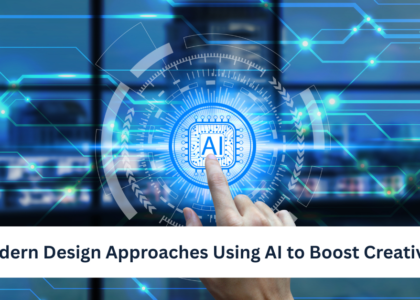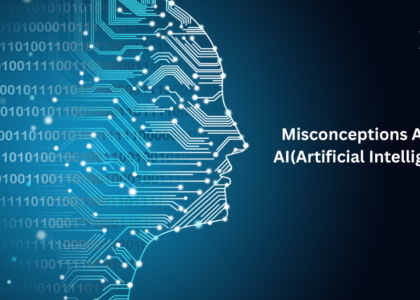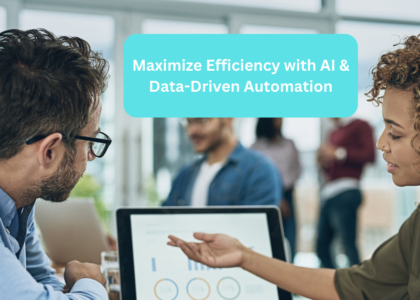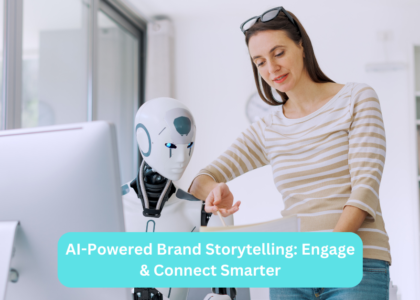Artificial Intelligence (AI) is rapidly transforming how we approach cognitive skill development. AI-powered tools can enhance problem-solving, critical thinking, creativity, and decision-making across various domains. This article explores practical applications of AI tools in cognitive skill enhancement, listing key tools, their uses, and their pros and cons.
1. AI and Cognitive Skills: A Practical Approach
Cognitive skills are core mental abilities that impact learning, problem-solving, and decision-making. AI-driven solutions help improve these skills by offering personalized experiences, automating repetitive tasks, and providing insights through data analysis.
Applications of AI in Cognitive Skill Development:
- Critical Thinking: AI-driven debate platforms that provide counterarguments.
- Problem-Solving: AI-based simulation environments for complex scenario testing.
- Memory Enhancement: AI-powered flashcard and spaced-repetition apps.
- Decision-Making: AI-driven analytics for data-backed decisions.
- Creativity Boosting: AI-powered content and design generation tools.
- Emotional Intelligence Training: AI chatbots that simulate social interactions and provide feedback.
- Personalized Learning: AI-based tutors that adapt to individual learning styles and pace.

2. AI Tools for Enhancing Cognitive Skills
Below is a list of AI tools categorized based on their role in cognitive development.
A. Critical Thinking & Problem-Solving
1. IBM Watson
- Use: Provides AI-powered insights for decision-making and complex problem-solving.
- Pros: Advanced data analysis, and natural language understanding.
- Cons: Expensive, requires technical knowledge.
2. GPT-4 (OpenAI)
- Use: Enhances logical reasoning by generating diverse perspectives on arguments.
- Pros: Natural and coherent text generation, adaptable for various uses.
- Cons: Can sometimes generate biased or inaccurate responses.
3. Socratic by Google
- Use: AI-powered learning assistant for students that explains complex subjects.
- Pros: Easy to use, helps with various subjects.
- Cons: Limited depth for advanced topics.
B. Memory & Learning Enhancement
4. Anki
- Use: Use spaced repetition to help memorize information effectively.
- Pros: Highly customizable, effective for long-term retention.
- Cons: Steep learning curve for beginners.
5. ELSA Speak
- Use: AI-powered English pronunciation training.
- Pros: Personalized feedback, and accurate pronunciation correction.
- Cons: Limited language options, requires premium for full access.
6. CogniFit
- Use: AI-driven brain training for cognitive skill enhancement.
- Pros: Scientifically backed, tracks progress.
- Cons: Subscription required for full access.

C. Decision-Making & Data Analysis
7. Tableau AI
- Use: AI-driven data visualization and predictive analytics.
- Pros: Simplifies complex data, and integrates with multiple platforms.
- Cons: Requires prior knowledge of data analytics.
8. Grammarly
- Use: AI-powered writing assistant that improves clarity and coherence.
- Pros: Enhances communication skills, and real-time suggestions.
- Cons: Limited features in the free version, not always contextually accurate.
9. Crystal Knows
- Use: AI-powered personality analysis for improving communication and decision-making.
- Pros: Helps in workplace interactions, and improves emotional intelligence.
- Cons: Limited free version, accuracy varies.
D. Creativity & Innovation
10. Runway ML
- Use: AI-powered tool for creative media, including video editing and content creation.
- Pros: User-friendly, great for artists and designers.
- Cons: Can be resource-intensive on devices.
11. Canva AI (Magic Design)
- Use: AI-driven design assistant for creating graphics and branding materials.
- Pros: Easy to use, saves time on creative projects.
- Cons: Limited customization in AI-generated designs.
12. Deep Dream Generator
- Use: AI-based tool for transforming images into dream-like visuals.
- Pros: Unique artistic effects, easy to use.
- Cons: Limited customization without premium.
E. Emotional Intelligence & Communication
13. Replika
- Use: AI chatbot designed to improve emotional intelligence through conversation.
- Pros: Provides companionship, and helps with social skills.
- Cons: Limited to virtual interactions, not a replacement for real human connection.
14. Woebot
- Use: AI-powered mental health chatbot that helps with stress management.
- Pros: Free to use, scientifically backed.
- Cons: Not a substitute for professional therapy.
3. AI and Workplace Cognitive Skills
Many businesses are integrating AI to enhance employee cognitive skills. AI-driven professional training platforms analyze learning styles and create customized training plans. AI-powered collaboration tools improve teamwork, while decision-support systems help leaders make data-driven choices.
Key Benefits:
- Increased Productivity: AI automates repetitive cognitive tasks, freeing time for critical thinking.
- Enhanced Creativity: AI assists in brainstorming and content generation.
- Better Communication: AI-powered writing assistants improve clarity and impact.

4. Future of AI in Cognitive Skills Development
The future of AI in cognitive skill enhancement is promising, with advancements in personalized learning, emotion recognition, and adaptive tutoring systems. Emerging trends include:
- AI-Powered VR Training: Virtual reality combined with AI for immersive learning experiences.
- AI-Based Emotion Analysis: Tools that analyze facial expressions and voice tone for real-time feedback.
- Adaptive AI Tutors: AI systems that personalize learning paths based on real-time performance.
- Neural Interface Integration: Direct AI-brain communication for enhanced cognition.
- Advanced Natural Language Processing: AI tools that understand and adapt to human emotions better.
- AI-Powered Mind Mapping: Tools that help in visualizing and structuring ideas more effectively.
FAQs
Q1: How can AI improve cognitive skills?
AI can enhance cognitive skills by providing personalized learning experiences, automating repetitive tasks, offering insights through data analysis, and simulating real-world scenarios for better problem-solving and decision-making.
Q2: Are AI cognitive tools effective for all age groups?
Yes, AI tools cater to different age groups, from children to seniors. Some tools focus on early learning, while others assist professionals in skill enhancement and cognitive training.
Q3: Can AI replace traditional cognitive training methods?
AI complements traditional methods but does not entirely replace them. Human interaction, real-life experiences, and critical thinking exercises remain essential alongside AI-powered learning.
Q4: Are AI tools for cognitive skills expensive?
Some AI tools offer free versions with limited features, while others require a subscription for advanced functionalities. The cost varies depending on the tool and its purpose.
Q5: How can businesses use AI to enhance employee cognitive skills?
Businesses can use AI-driven training platforms, personalized learning systems, and decision-making analytics to improve employee productivity, creativity, and problem-solving abilities.

Conclusion
AI tools are revolutionizing the way we enhance cognitive skills. Whether it’s critical thinking, memory retention, decision-making, creativity, or emotional intelligence, AI-driven platforms provide support that helps individuals and professionals perform better. However, it’s crucial to select the right tool based on needs, weighing the benefits and limitations carefully.
By integrating AI into cognitive development, we not only enhance human capabilities but also create more efficient and innovative ways of learning and problem-solving. As technology continues to evolve, AI will play an even greater role in shaping the future of cognitive skill enhancement.


